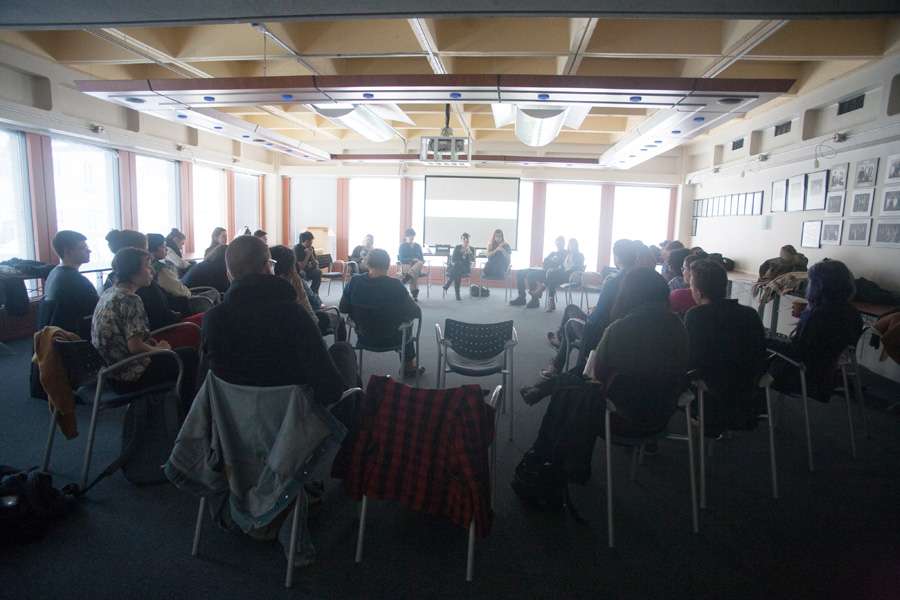The accessibility of mainstream methods of self-care was the topic of a workshop during last week’s Social Justice Days series.
Hosted by the McGill-Quebec Public Interest Research Group (QPIRG) and the Students’ Society of McGill University (SSMU), the event was called “Self Care: Critical Perspectives on Oprah, Capitalism, and Happiness.”
The workshop began with a presentation that showcased suggestions for taking care of oneself commonly shared on the popular social-media blogging platform Tumblr. Self-care suggestions included buying new clothes and taking time off work. Participants then discussed the accessibility of the self-care solutions proposed in popular discourse.
Andrea Figueroa, a manager of the workshop, stressed the importance of critiquing the idea of self-care on community-wide level.
“Self-care seems to be put on a pedestal in a way that cannot be criticized,” she said. “[Improvement] requires larger conversations within our communities and spaces.”
According to Simone Page, a participant in the workshop, certain groups within society, such as those looking after children or elderly family members, are often excluded from this discussion of self-care.
“There are certain people in the community that take a way bigger burden than the rest of us,” Simone said. “These are the people that need self-care the most and they are also the people that are left out of a lot of self-care discussion.”
Simone highlighted the example of unpaid caregivers in unstable economic situations.
“It could be any mother or any father […] they might find themselves not economically stable, or they could be working full-time jobs and then coming home to take care of their children or take care of their parents,” Simone said. “Treat yourself; do nice things to yourself; go to group sessions, and exercise more—those things aren’t realities for people [who] are caregivers. The discourse of self-care needs to be more inclusive.”
Also critiqued during the workshop was the idea that inadequate self-care leads to the persistence of mental health issues. One student, who asked to remain anonymous, mentioned the case of abuse or trauma survivors. She challenged the idea that forgiveness of the perpetrator should always be the end goal for survivors of trauma.
“When we talk about forgiveness, we need to make sure we’re not talking about erasing—that the thing you’re forgiving is not a part of you anymore,” the student said. “For people who have survived trauma and violence, to be told to forgive is not always possible. It takes many, many years and it depends on the context of the relationships you have with the people who have made you feel traumatized or violated. The ability to forgive isn’t always necessarily what’s best for a person.”
Kira Page, QPIRG programming and outreach coordinator, said the event represented a positive step towards future avenues of improvement.
“I think it was a really good event to be a starting point for the conversation,” Kira said. “It’s really important to be learning from the people who are directly affected [by social justice issues], to be engaging with that honestly and with trust and openness.”
This year’s Social Justice Days were the 8th annual series of events. The week of events aimed to increase awareness and foster discussion about social justice issues that impact both local and global communities.
Kira stressed the importance of community-wide conversations on all social justice issues.
“It comes down to thinking that these issues are important,” she said. “Our work with social justice days and QPIRG in general is with the belief that a lot of people are suffering, and it’s very important to think about those on a systemic level.”







